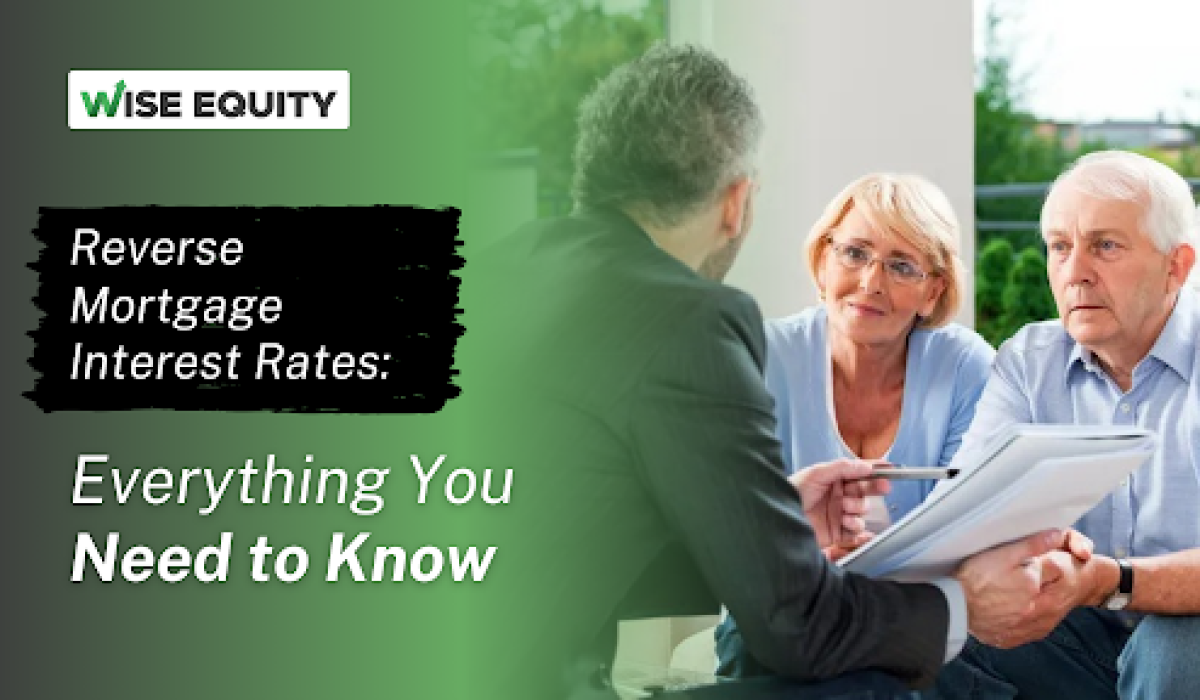When planning for retirement, one of the most important factors to consider in a reverse mortgage is the reverse mortgage interest rates. These rates directly impact how much you can borrow, how quickly your loan balance grows, and ultimately, how much equity remains in your home over time.
Whether you’re new to the concept of reverse mortgages or actively comparing offers, understanding how interest rates work will help you make a smarter, more informed decision. In this guide, we’ll explore the different types of rates, the factors that influence them, and tips for securing favorable terms.
1. What Are Reverse Mortgage Interest Rates?
Reverse mortgage interest rates are the cost you pay for borrowing against your home equity. Unlike a traditional mortgage, you aren’t making monthly payments, so the interest accumulates over time and is added to your loan balance.
These rates can be fixed or adjustable:
- Fixed Rates – Stay the same for the life of the loan, offering stability.
- Adjustable Rates – Can change periodically, often tied to an index like the LIBOR or CMT.
Wise Equity explains that while fixed rates may offer peace of mind, adjustable rates can sometimes provide more flexibility and access to larger loan amounts, depending on market conditions.
2. Why Interest Rates Matter in Reverse Mortgages
Your reverse mortgage interest rates affect more than just the cost of borrowing. They influence:
- Loan Amount – Lower rates may increase the amount you qualify for.
- Loan Growth – Higher rates cause the balance to grow faster, reducing your remaining equity.
- Long-Term Costs – Over time, a small difference in rate can significantly affect the total loan payoff amount.
For example, a $200,000 loan at 4% interest will grow much more slowly than the same loan at 6%. This means your heirs might inherit more equity in the home with a lower rate.

3. Factors That Influence Reverse Mortgage Interest Rates
Several factors determine the rate you’re offered:
- Market Conditions – Economic shifts, inflation, and Federal Reserve policies can raise or lower rates.
- Loan Type – Home Equity Conversion Mortgages (HECMs) have different rate structures compared to proprietary loans.
- Borrower Profile – Your age, home value, and location can all play a role.
- Lender Margins – Each lender adds their own margin to the index rate.
According to Wise Equity, shopping around and comparing multiple offers is one of the best ways to ensure you’re getting the most competitive rate.
4. Fixed vs. Adjustable Reverse Mortgage Interest Rates
Choosing between fixed and adjustable rates depends on your goals:
- Fixed Rate – Best if you prefer certainty and plan to take a lump sum payment.
- Adjustable Rate – Often better for those who want a line of credit or monthly payments, as it can provide more initial borrowing power.
However, adjustable rates may increase over time, so it’s important to understand the adjustment limits and caps before committing. Wise Equity advises reviewing the lender’s rate history to gauge how often and how much the rates have changed.

5. How to Get the Best Reverse Mortgage Interest Rates
Here are steps to improve your chances of securing a lower rate:
- Improve Your Home Value – A higher appraisal may unlock better loan terms.
- Stay Informed About Market Trends – Apply when interest rates are trending lower.
- Negotiate Lender Margins – Even a small reduction can save thousands over time.
- Work with a Specialist – Companies like Wise Equity often have access to exclusive lender offers.
Being proactive can pay off — literally. By timing your application and comparing options, you can maximize your borrowing power while minimizing long-term costs.
6. Common Misconceptions About Reverse Mortgage Interest Rates
Many retirees assume reverse mortgage rates are always higher than traditional mortgage rates. While sometimes true, that’s not always the case. Rates depend heavily on market conditions and lender competition.
Another myth is that adjustable rates are “dangerous.” In reality, they can be a smart choice if you plan to use the loan for a shorter period or want flexible withdrawal options. Wise Equity notes that the right rate type depends entirely on your personal financial plan.
Final Thoughts
Your reverse mortgage interest rates will play a huge role in determining how beneficial the loan is for your retirement. By understanding the different types of rates, the factors that affect them, and strategies for securing the best deal, you can make a confident, informed decision. Partnering with a trusted provider like Wise Equity ensures you have expert guidance every step of the way.

